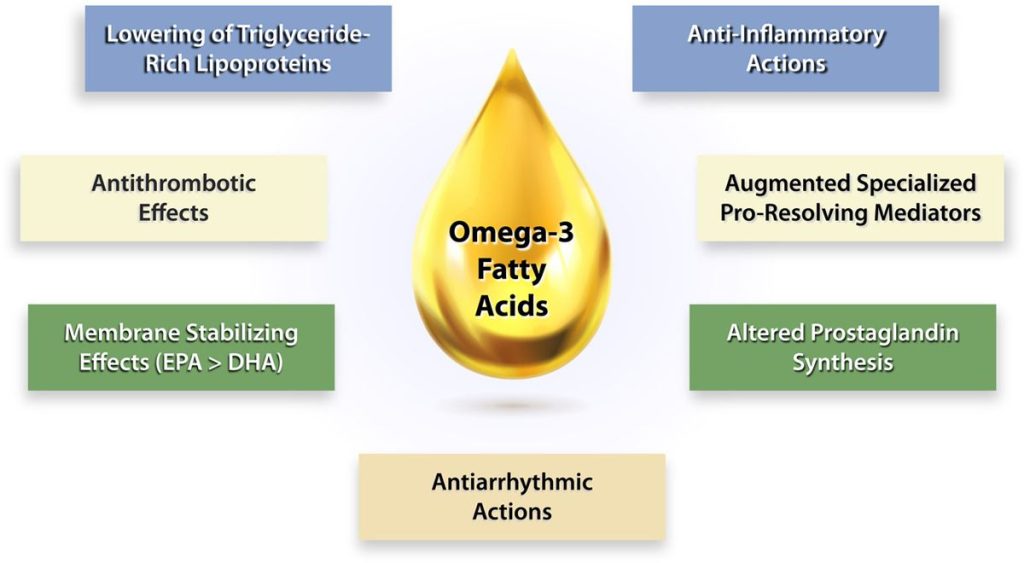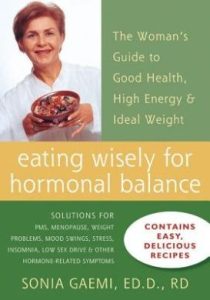The role of omega-3 fatty acids in supporting women’s hormonal harmony

Omega-3 fatty acids are essential nutrients that play a pivotal role in maintaining overall health and well-being. These healthy fats have gained significant attention for their numerous benefits, particularly in supporting women’s hormonal harmony. This article explores the importance of omega-3 fatty acids and how they positively influence a woman’s hormonal balance.
Understanding Hormonal Harmony
Hormonal harmony refers to the delicate balance of hormones within a woman’s body. Hormones are chemical messengers that regulate various bodily processes, including menstruation, fertility, mood, and overall well-being. When hormones are in balance, women tend to experience fewer discomforts and enjoy improved quality of life.
However, several factors such as stress, poor diet, age, and certain health conditions can disrupt this delicate balance, leading to hormonal imbalances. These imbalances may manifest as irregular periods, mood swings, fertility issues, and other complications.
The Importance of Omega-3 Fatty Acids
Omega-3 fatty acids, primarily found in fatty fish like salmon and sardines, are an integral part of a healthy diet. They are considered essential fatty acids as our bodies cannot produce them, so we must obtain them through diet or supplements.
These fatty acids are crucial for various bodily functions, including brain health, heart health, and reducing inflammation. Additionally, they play a significant role in maintaining hormonal harmony in women’s bodies.
1. Regulating Menstruation
Omega-3 fatty acids have been shown to help regulate menstrual cycles, promoting regular and predictable periods. This is especially beneficial for women who experience irregular periods or menstrual disorders such as polycystic ovary syndrome (PCOS).
Studies have suggested that omega-3 fatty acids may help balance hormones involved in menstruation, such as estrogen and progesterone. By promoting hormonal balance, omega-3s can help women maintain a healthy menstrual cycle and reduce associated symptoms.
2. Relieving Premenstrual Symptoms (PMS)
Many women experience premenstrual symptoms such as bloating, mood swings, and breast tenderness in the days leading up to their periods. Omega-3 fatty acids have been found to have a positive impact on alleviating these symptoms.
The anti-inflammatory properties of omega-3s are believed to reduce inflammation associated with PMS, thereby relieving discomfort and mood disturbances commonly experienced during this time. Incorporating omega-3-rich foods or supplements can help lower the severity of these symptoms and improve overall well-being.
3. Supporting Fertility
Omega-3 fatty acids also play a crucial role in supporting fertility in women. They contribute to the regular functioning of the reproductive system, including the development and release of eggs.
Furthermore, omega-3s help in maintaining the integrity of the uterine lining, which is vital for successful implantation of a fertilized egg. By promoting a healthy reproductive system, these healthy fats can contribute to improved fertility rates and increase the chances of successful conception.
4. Balancing Mood and Emotional Well-being
Hormonal fluctuations can often lead to mood swings, irritability, and emotional imbalances. Omega-3 fatty acids have been extensively studied for their positive effects on mental health and emotional well-being.
Research suggests that omega-3s may help regulate neurotransmitters in the brain, such as serotonin and dopamine, which are involved in mood regulation. By supporting healthy brain function, these essential fatty acids can mitigate hormonal-induced mood swings and promote emotional stability.
Conclusion
Ensuring hormonal balance is crucial for women’s overall health and well-being. Omega-3 fatty acids have emerged as valuable nutrients with the potential to support women’s hormonal harmony. By incorporating omega-3-rich foods or supplements into their diets, women can promote regular menstrual cycles, alleviate PMS symptoms, support fertility, and maintain emotional well-being.
Remember, before incorporating any dietary changes or supplements, it is essential to consult with a healthcare professional or registered dietitian to determine the most appropriate approach for your individual needs.





